-
CATEGORY ::
- All Seeds /
- All Ornamental Grass Seeds /
- All Stipa Seeds


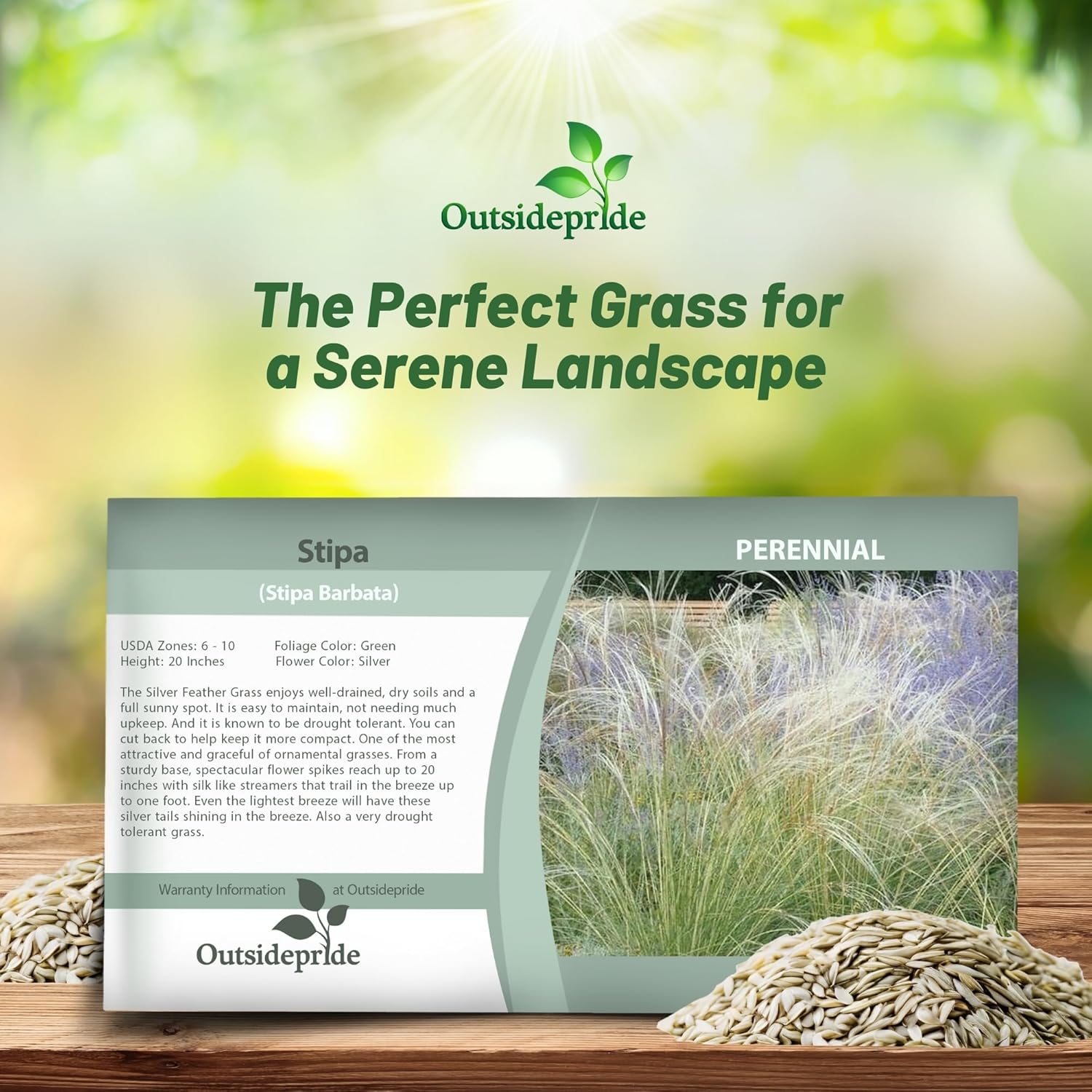

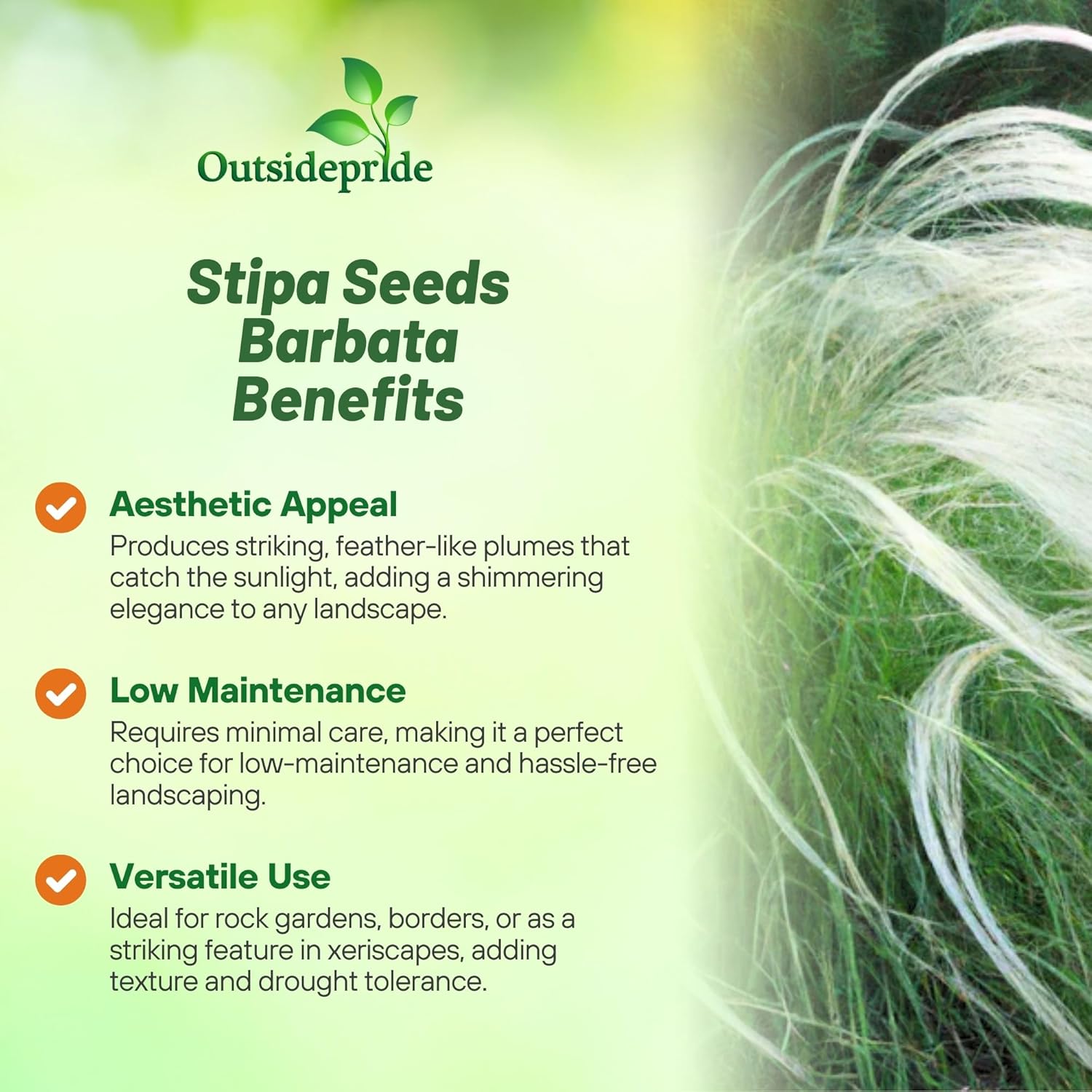
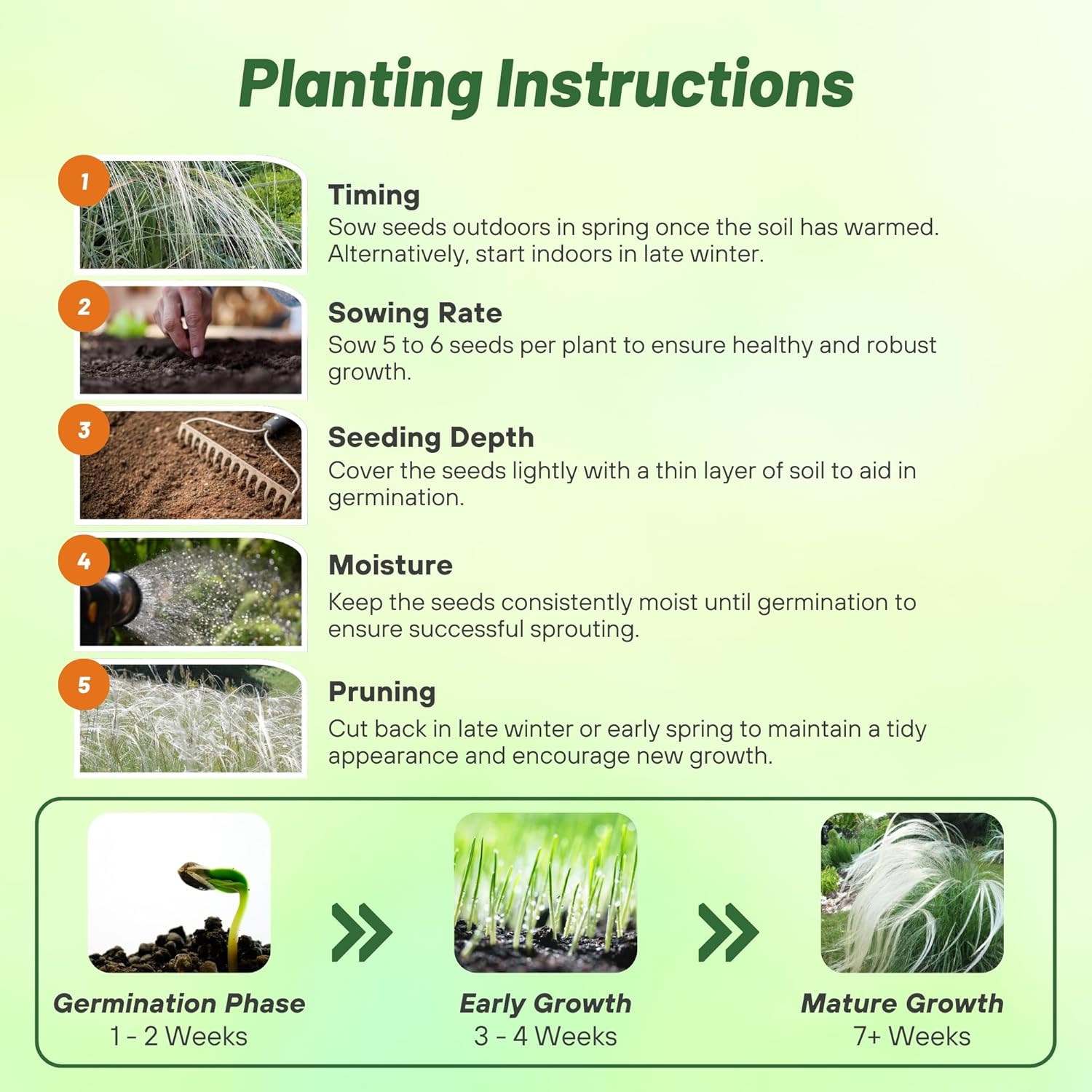
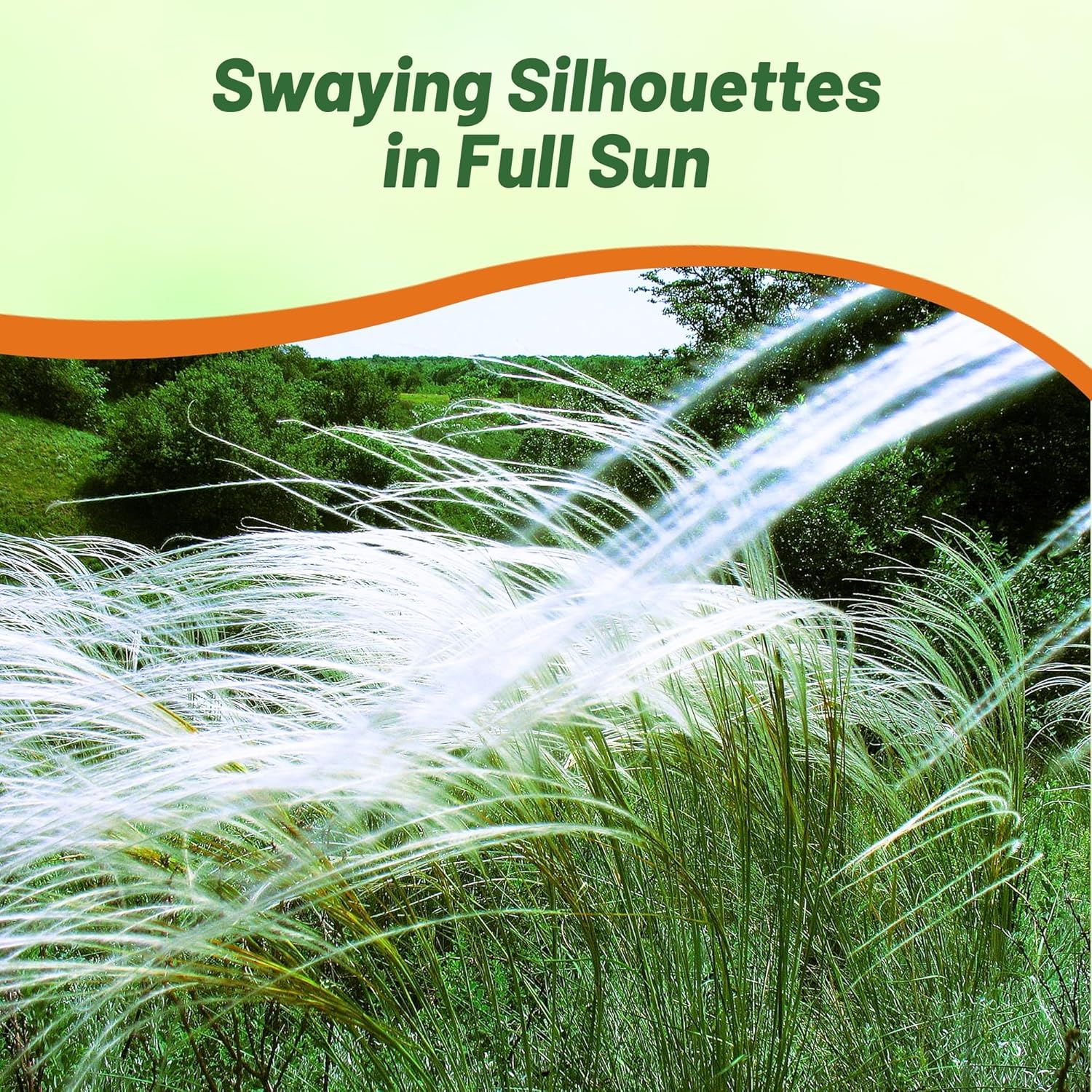




Stipa Seeds - Barbata
SEASON
Perennial
USDA ZONES
6 - 10
HEIGHT
20 inches
WIDTH
12 inches
FOLIAGE COLOR
Green
FLOWER COLOR
Silver
SOIL REQUIREMENT
Average garden soil, pH 6.0 - 7.0
ENVIRONMENT
Full sun
DEER RESISTANT
Yes
SEASON
Perennial
USDA ZONES
6 - 10
HEIGHT
16 inches
WIDTH
12 inches
FOLIAGE COLOR
Medium green
FLOWER COLOR
White spikes
GROWTH RATE
Fast
FALL COLOR
Golden brown
SOIL REQUIREMENT
Average garden soil, pH 6.0 - 7.0
ENVIRONMENT
Full sun
DEER RESISTANT
Yes
MOISTURE REQUIREMENTS
Average to dry
LATIN NAME
Stipa tenuissima
SEASON
Perennial
USDA ZONES
8 - 10
HEIGHT
30 inches
WIDTH
36 inches
FOLIAGE COLOR
Green, bronze and golden
FLOWER COLOR
Green, bronze and golden
GROWTH RATE
Fast
FALL COLOR
Orange-brown
SOIL REQUIREMENT
Moderate fertility
ENVIRONMENT
Full sun
DEER RESISTANT
Yes
MOISTURE REQUIREMENTS
Dry
About...
Stipa (Stipa Barbata) - This drought tolerant ornamental grass is also called, "Silver Feather Grass." Many gardeners consider it to be one of the most attractive and graceful of all perennial ornamental grasses.MORE STIPA OPTIONS
Planting Directions
TEMPERATURE
68 - 72F
TEMPERATURE
AVERAGE GERM TIME
AVERAGE GERM TIME
14 - 21 days
LIGHT REQUIRED
Yes
DEPTH
Cover seeds lightly
SOWING RATE
5 - 6 seeds per plant
MOISTURE
Keep seeds moist until germination
PLANT SPACING
12 - 16 inches

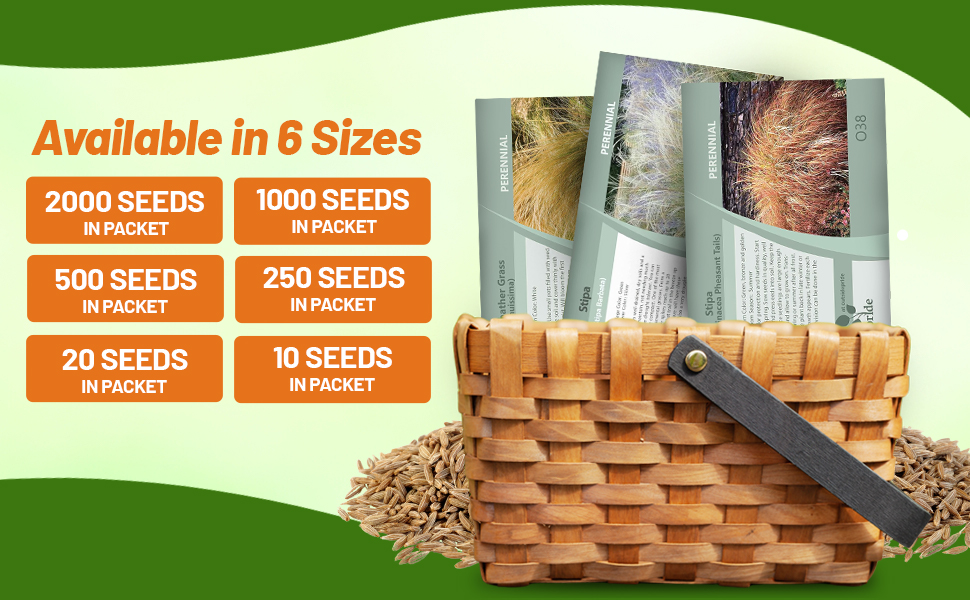
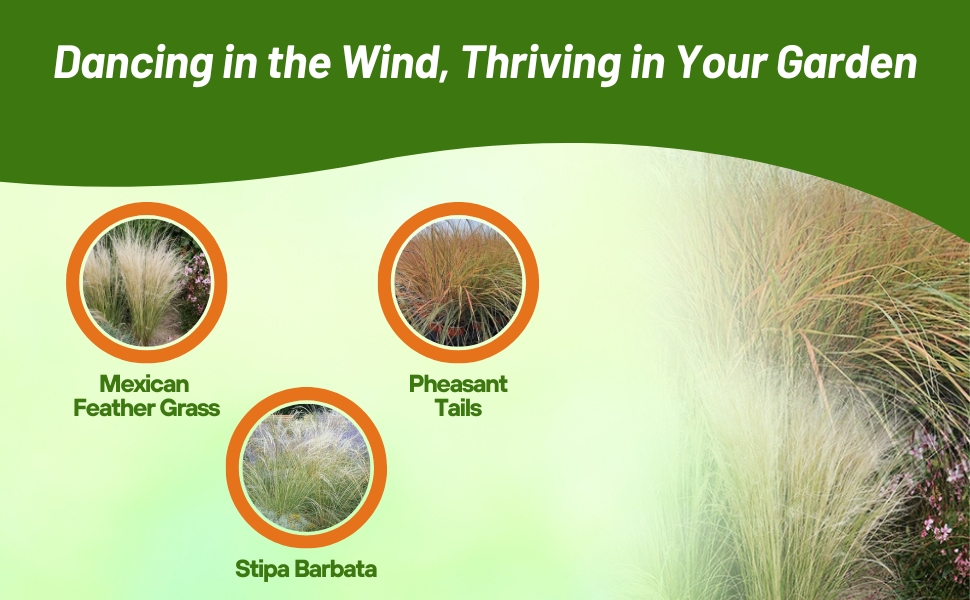
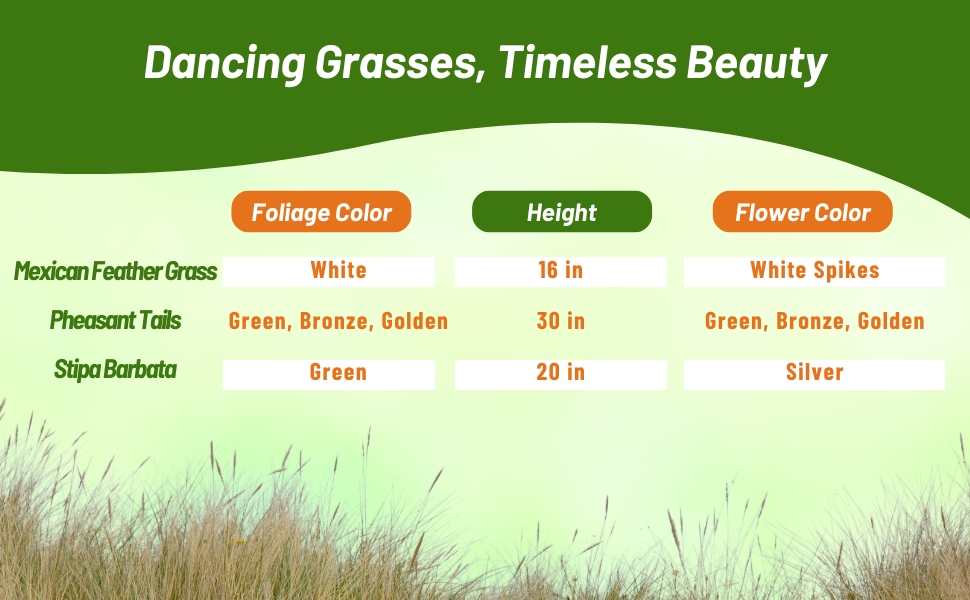

Stipa (Stipa Barbata) - This ornamental grass is also called, "Silver Feather Grass." Many gardeners consider it to be one of the most attractive and graceful of all perennial ornamental grasses. From a sturdy base, spectacular flower spikes reach up to 20 inches with silk like streamers that trail in the breeze up to one foot. Even the lightest breeze will have these silver tails of Stipa Barbata shining in the breeze. Stipa barbata is also a very drought tolerant grass.
Common Questions
What are some companion plants I can use with stipa barbata?
Plants such as eryngium, agapanthus, penstemon, and yarrow all do well with stipa barbata.
Will deer eat my plants?
No, deer tend to avoid these plants.
What are some good ways to use in my landscape?
These make a lovely accent plant for beds and borders, naturalized settings or in containers.
Planting Directions
TEMPERATURE
68 - 72F
AVERAGE GERM TIME
2 - 3 weeks
LIGHT REQUIRED
Yes
DEPTH
Cover seeds lightly
SOWING RATE
5 - 6 seeds per plant
MOISTURE
Keep seeds moist until germination
PLANT SPACING
12 inches

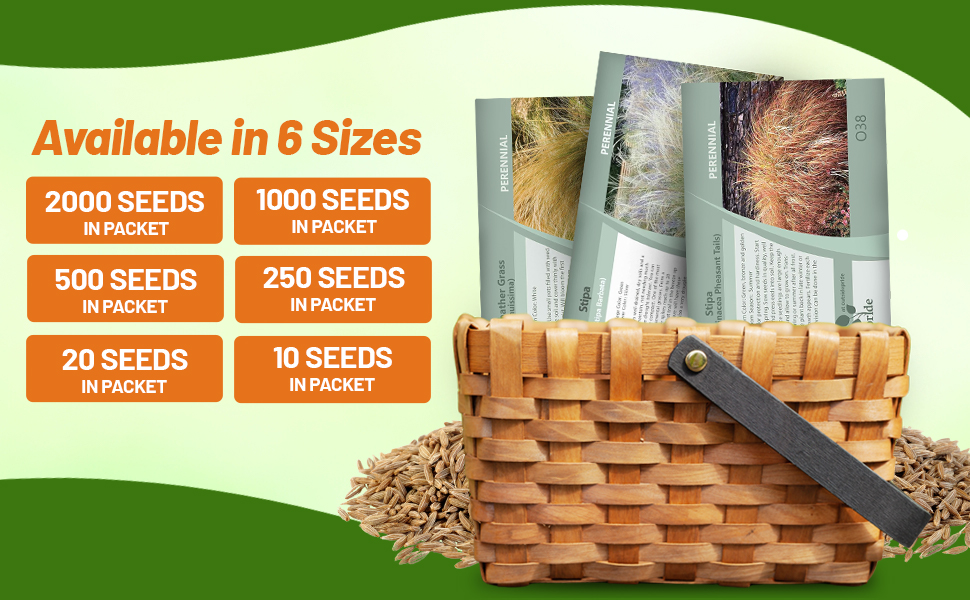
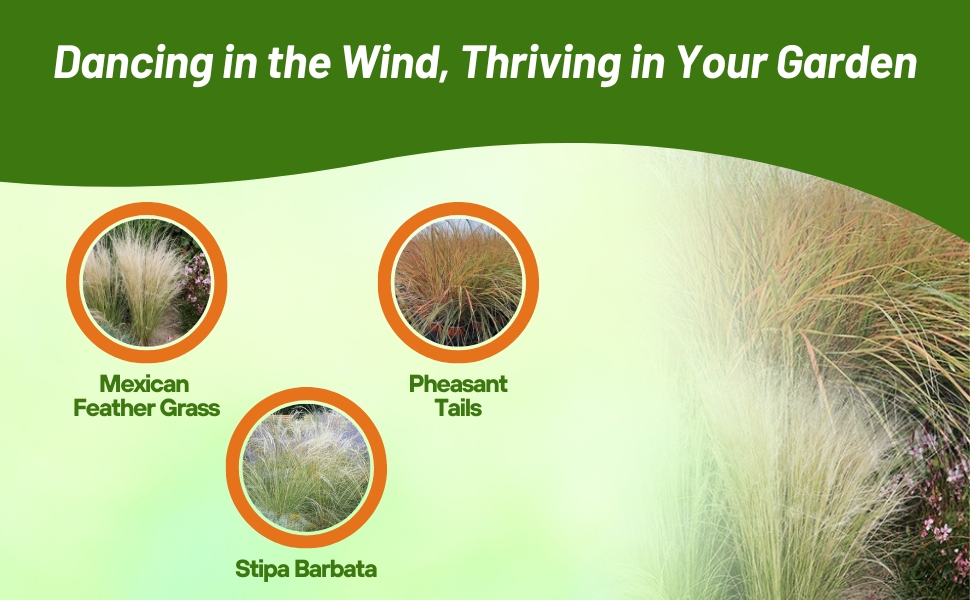


Mexican Feather Grass (Stipa tenuissima) - Grown from Mexican Feather Grass seeds, this beautiful mounded drought tolerant ornamental grass with needle-like flexible leaves forms dense, bright green clumps. The flowers are silky awns that appear in June and change from green to gold as they mature. These ornamental grasses are especially striking when planted in masses, but they also can be grown in containers with nice results.
Stipa tenuissima Mexican Feather Grass also is commonly called Silky Thread Grass or Mexican Needle Grass, and it has moderate cold-hardiness and performs very well in hot summer months. This is an environmentally-friendly ornamental grass with virtually no pests or diseases and is perfect for xeriscape landscaping where water conservation is required.
How To Grow Mexican Feather Grass From Seed: Start the Stipa tenuissima seeds indoors in the early spring. Use small pots filled with seed starting mix. Place the ornamental grass seeds onto the soil and cover thinly with sand or soil and keep the seeds moist. Mexican Feather Grass will bloom the first year. Plant the ornamental grass in full sun and in well-drained soils that are moisture retentive but never wet and not overly rich. A sandy-loam soil being ideal as they can be short-lived in heavy soils.
Common Questions
Is Mexican feathergrass deer resistant?
Yes, deer and rabbits tend to avoid these plants.
Can grass withstand drought?
Yes, once established Mexican feathergrass is drought tolerant.
How is this grass used in the landscape?
This is a beautiful accent plant for beds, borders, naturalized meadows or in containers.
Planting Directions
TEMPERATURE
64 - 75F
AVERAGE GERM TIME
1 - 2 weeks
LIGHT REQUIRED
Yes
DEPTH
Do not cover
SOWING RATE
2 - 3 seeds per plant
MOISTURE
Keep seeds moist until germination
PLANT SPACING
24 inches


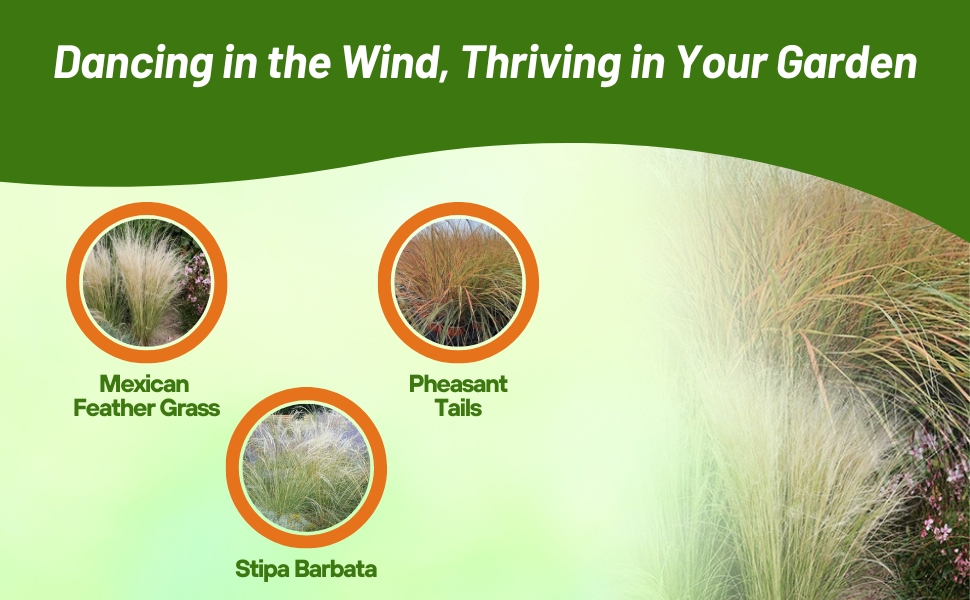
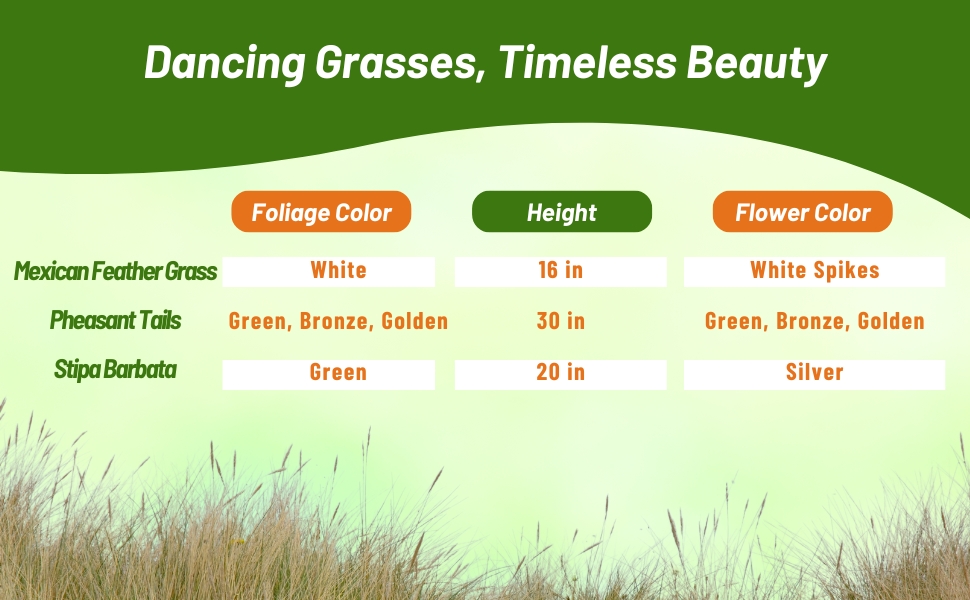

Stipa (Stipa arundinacea Pheasant Tails) - Drought tolerant ornamental grasses add great texture and interest in the mixed border or xeriscape garden and this Pheasant's Tail grass is no exception. Grown from Stipa seeds, this clumping evergreen has narrow blades that arch gracefully and are streaked with coppery orange. In midsummer, pendent flowers open that are purplish green and give a misty appearance. Also called New Zealand Wind Grass, this drought tolerant ornamental grass is popular for its delightful form, colors, and drought tolerance where water conservation is becoming more and more important.
How To Grow Ornamental Grass Seeds: Many gardeners grow Stipa seeds in a cold frame for protection and hardiness. Start Pheasant's Tail grass seeds in the late winter or early spring. Sow the ornamental grass seeds in quality, well-draining seed starting mix and press the seeds into the soil. Keep the Stipa seeds moist until germination occurs. Once seedlings are large enough to handle, move into a pot and allow to grow on. Transplanting can be done in spring or summer after all frost danger has passed. Ornamental grass care includes trimming the plant back in late winter or early spring before new growth appears. Fertilize each spring. Propagation from division can be done in the spring as well.
Common Questions
What are some companion plants I can use with stipa barbata?
Plants such as cosmos, Mexican feathergrass, red hot poker and columbine.
Will deer eat my plants?
No, deer tend to avoid these plants.
What are some good ways to use in my landscape?
This ornamental grass is perfect for borders, in containers, mass plantings, edging plants, gravel gardens, for erosion control and make a lovely backdrop.































